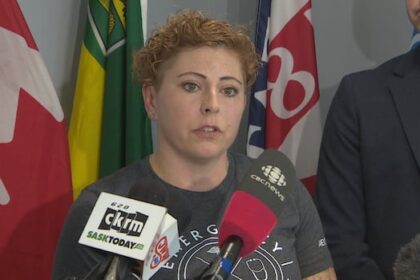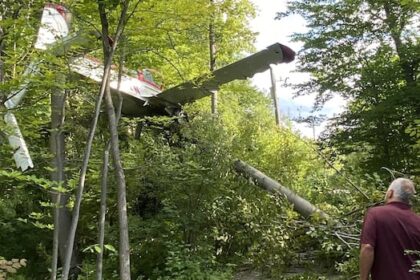ManitobaMore school-age children meet the criteria for a learning disability, but not everyone in Manitoba is on board with the idea of universal screening in schools.1-on-1 interaction, developing learning strategies more beneficial: Lillian KlausenNathan Liewicki · CBC News · Posted: Nov 02, 2025 5:51 PM EST | Last Updated: 39 minutes agoListen to this articleEstimated 5 minutesA private member’s bill presented in the Manitoba Legislature in late October has drawn differing views from members of the education and learning disability communities. (Syda Productions/Shutterstock)More school-age children meet the criteria for a learning disability, but not everyone in Manitoba is on board with the idea of universal screening in schools.A private member’s bill introduced by Liberal MLA Cindy Lamoureux late last month calls for Manitoba to introduce biannual universal screening for learning disabilities in classrooms of students in kindergarten to Grade 3.The province has already taken steps aligned with the bill, with a pilot already underway at some schools.An education ministerial spokesperson said in April it aimed to expand the screening to all K-4 students by next fall.Manitoba parents call for universal screening for learning disabilities in schoolsManitoba Teachers Society President Lillian Klausen said early-age teachers are constantly screening students for learning disabilities, but her concern is when words like standardized testing and universal screening are thrown around.“We understand that students don’t all learn the same way and we don’t assess them all the same way,” Klausen said on Information Radio Wednesday.“Teachers have a variety of tools that they use to assess students throughout the year. They have a variety of strategies that they use to teach students throughout the year. No one student will respond the same way to a universal or a standardized test as another student.”Lillian Klausen, the president of the Manitoba Teachers’ Society, doesn’t think universal screening in schools is the best use of resources. (Submitted by Manitoba Teachers’ Society)Klausen would much rather see money spent on specialists working at either a division or school level to accompany the teachers, and who are able to communicate with them the needs and goals of the students. “If we are looking to really help students with learning difficulties, then we need to put in place some people who have specialty areas who can come in and do some of that assessing on a one-on-one basis — not a universal or a standardized type test, but actually meeting and speaking with the student and designing some strategies that can help that student.”Formal screening would be proactiveAlthough she supports the bill, Karen Velthuys, executive director of the Learning Disabilities Association of Manitoba, believes it’d be more beneficial to start screening kids before they enter the classroom.“We know that kids who are in preschool already can show signs of having a learning disability. So it shows up in ways such as phonological awareness challenges. They might have difficulty rhyming, trouble remembering sounds and we see that even before they enter kindergarten,” she said on Information Radio on Oct. 28.Velthuys believes her organization can provide support with universal screening, including at daycares, preschools and family centres.She said children with learning disabilities can have their self-esteem start to erode. Mental health challenges can also arise, and they can experience a disconnect from wanting to show up at school.“The faster we can protect a child’s confidence and get rid of years of frustration [the better]. We need to get away from the waiting-for-them-to-fail model and help support them before we see them failing,” Velthuys said.She suggests a formal screening procedure would be proactive in helping look for risk factors even before the struggles begin to appear in children.Road to readingCarol Townsley has 30 years of experience in the early childhood education system, but always wondered why some kids could, for example, begin to read while others struggled.“Some kids are just a puzzle,” said Townsley, a retired teacher who still tutors children.One student in particular, who Townsley described as “so bright and so motivated” to read and write but had no skills to do so, served as the catalyst for her to start to figure out how to help him and others.A conversation with the school psychologist led her to roll out a sequential, systematic letter sound phonics program for kids who struggled to read. She thinks a similar program could help Manitoba kids, who make up a small part of the 5-10 per cent of Canadian school age children that meet the criteria for a learning disability, according to the Canadian Pediatric Society.“Those teachers that I was involved with that saw the change in their children, the ones that they were worried about did begin to embrace it,” Townsley said.Her concern is that teachers are already struggling to keep up, doing more with less.“They’re just so busy,” Townsley said. “This is why I really feel strongly that … in the universities, they should be receiving instruction on the science of reading.”ABOUT THE AUTHORNathan Liewicki is an online reporter at CBC Manitoba. He was previously nominated for a national RTDNA Award in digital sports reporting. He worked at several newspapers in sports, including the Brandon Sun, the Regina Leader-Post and the Edmonton Journal.With files from Information Radio
Friday, 6 Feb 2026
Canada – The Illusion
Search
Have an existing account?
Sign In
© 2022 Foxiz News Network. Ruby Design Company. All Rights Reserved.
You May also Like
- More News:
- history
- Standing Bear Network
- John Gonzalez
- ᐊᔭᐦᑊ ayahp — It happened
- Creation
- Beneath the Water
- Olympic gold medal
- Jim Thorpe
- type O blood
- the bringer of life
- Raven
- Wás’agi
- NoiseCat
- 'Sugarcane'
- The rivers still sing
- ᑲᓂᐸᐏᐟ ᒪᐢᑿ
- ᐅᑳᐤ okâw — We remember
- ᐊᓂᓈᐯᐃᐧᐣ aninâpêwin — Truth
- This is what it means to be human.
- Nokoma










